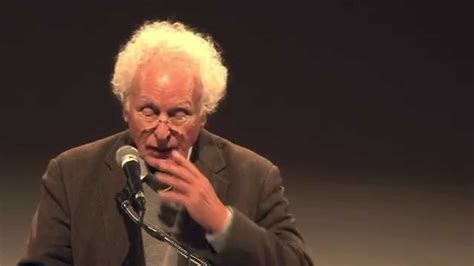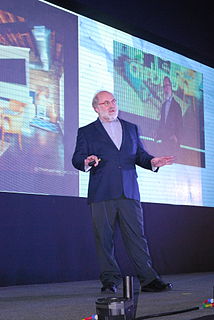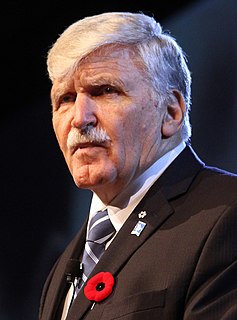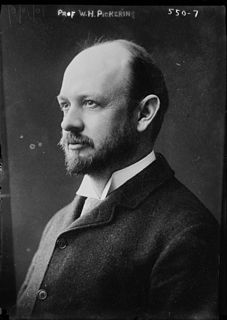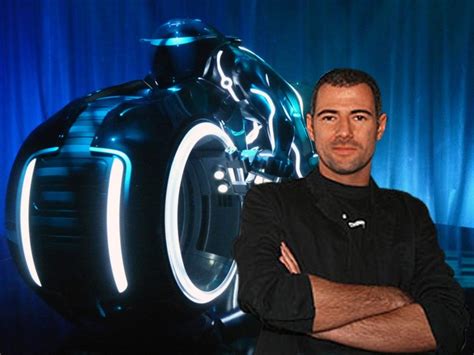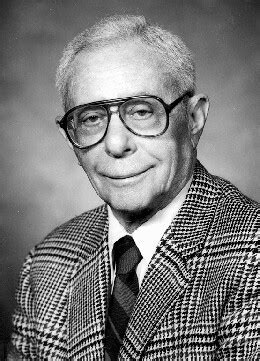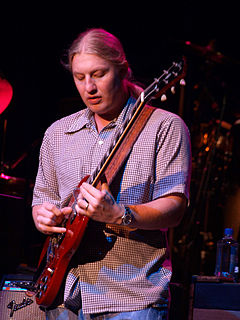Top 1200 Fax Machines Quotes & Sayings - Page 20
Explore popular Fax Machines quotes.
Last updated on November 14, 2024.
People must have renounced, it seems to me, all natural intelligence to dare to advance that animals are but animated machines.... It appears to me, besides, that such people can never have observed with attention the character of animals, not to have distinguished among them the different voices of need, of suffering, of joy, of pain, of love, of anger, and of all their affections. It would be very strange that they should express so well what they could not feel.
To conjure a particular knowledge you visualize an architectural structure and then you walk around and see the details that then bring back the words or the poetry or the lines of thought. Memory's going extinct because we rely on machines and copies and so on. The idea of working with structures that conjure dreams, personages, history, time, that can be contained in this way as you walk through your mind, is a challenge.
We must not suppose that, because a man is a rational animal, he will, therefore, always act rationally; or, because he has such or such a predominant passion, that he will act invariably and consequentially in pursuit of it. No, we are complicated machines; and though we have one main spring that gives motion to the whole, we have an infinity of little wheels, which, in their turns, retard, precipitate, and sometime stop that motion.
I embrace technology and I just think that in 1984 when James Cameron wrote about the technology, everyone thought he was totally way out there and it was science fiction. Now it's almost reality what he talked about. The machines have taken over, except they have not become self-aware, like in Terminator. So this is really one thing that we have to watch out for, but I think technology is good.
Commercial jazz, soap opera, pulp fiction, comic strips, the movies set the images, mannerisms, standards, and aims of the urban masses. In one way or another, everyone is equal before these cultural machines; like technology itself, the mass media are nearly universal in their incidence and appeal. They are a kind of common denominator, a kind of scheme for pre-scheduled, mass emotions.
Writers today must navigate the shifting verbal currents of the post-Gutenberg era. When does jargon end and a new vernacular begin? Where's the line between neologism and hype? What's the language of the global village? How can we keep pace with technology without getting bogged down in buzzwords? Is it possible to write about machines without losing a sense of humanity and poetry?
It is a kind of church, back in these last cores. It may not be your church -- this last one percent of the West – but it is mine, and I am asking unashamedly to be allowed to continue worshipping the miracle of the planet, and the worship of a natural system not yet touched, never touched by the machines of man. A place with the residue of God – the scent, feel, sight, taste, and sound of God – forever fresh upon it
All employees are obliged to act in concert, to behave in accordance with corporate form and corporate law. If someone attempted to revolt against these teets, it would only result in the corporation throwing the person out, and replacing that person with another who would act according to the rules. Form determines content: Corporations are machines.
We now have cultural machines so powerful that one singer can reach everybody in the world, and make all the other singers feel inferior because they're not like him. Once that gets started, he gets backed by so much cash and so much power that he becomes a monstrous invader from outer space, crushing the life out of all the other human possibilities. My life has been devoted to opposing that tendency.
The poet Amanda Nadelberg puts it nicely in an interview when she says "often what I listen for in poems is a sense that the writer is a little lost, not deliberately withholding information or turning on the heavy mystery machines, but honestly confounded - by the world? isn't it so? - and letting others listen in on that figuring." That's what engages me - the mind in motion, the drama of someone in the process of thinking - and it's the elusive mystery of those movements that I hope to capture in my essays.
Until very recently, most knowledge was inaccessible to people who couldn't read text. But this is changing. The computer opens up other channels of gaining knowledge. If someone is blind, we now have very good machines that will read to him. If someone can't recognize letters, he also will have access to knowledge through sound and images.
There is one other error in the Gondsman's line of resoning, I believe, on ap urely emotional level. If machines replace achievement, then to what will people aspire? And who are we, truly, without such goals? Beware the engineers of society, I say, who would make everyone in all the world equal. Opportunity should be equal, must be equal, but achievement must remain individual.
People's minds are polluted by these dark pictures of the future from Hollywood: "The Terminator," the Skynet, "The Matrix." It's world where there's no room for humans, or they have to fight against the machines. I think it's just a way, way, way, way in the future. Is it going to happen? I don't know. For me, these debates are not similar, but they resemble debates about how the sun will turn into a supernova in 4 to 5 billion years. Frankly, I don't care.
Typography is the craft of endowing human language with a durable visual form, and thus with an independent existence. Its heartwood is calligraphy - the dance, on a tiny stage, of the living, speaking hand - and its roots reach into living soil, though its branches may be hung each year with new machines. So long as the root lives, typography remains a source of true delight, true knowledge, true surprise.
Human rights pale beside the rights of machines. In more and more cities, especially in the great metropolises of the South, people have been banned. Automobiles usurp human space, poison the air, and frequently murder the interlopers who invade their conquered territory -and no one lifts a finger to stop them. Is there a difference between violence that kills by car and that which kills by knife or bullet?" (p.231)
We couldn't build quantum computers unless the universe were quantum and computing. We can build such machines because the universe is storing and processing information in the quantum realm. When we build quantum computers, we're hijacking that underlying computation in order to make it do things we want: little and/or/not calculations. We're hacking into the universe.
We must face the fact that we are on the brink of times when man may be able to magnify his intellectual and inventive capability, just as in the nineteenth century he used machines to magnify his physical capacity. Again, as then, our innocence is lost. And again, of course, the innocence, once lost, cannot be regained. The loss demands attention, not denial.
My mind, I know, I can prove, hovers on hummingbird wings. It hovers and it churns. And when it's operating at full thrust, the churning does not stop. The machines do not rest, the systems rarely cool. And while I can forget anything of any importance--this is why people tell me secrets--my mind has an uncanny knack for organization when it comes to pain. Nothing tormenting is ever lost, never even diminished in color or intensity or quality of sound.
Before information age, living standards basically were flat. Since then, they've been growing 2 percent a year were about 30 times richer. So technology, machines is really, you know, arguably the most important thing that's happened to humanity in terms of our living standards. You could look to the introduction of digital computers in the 1950s.
Machines have no political opinions, but they have profound political effects. They demand a strict regimentation of time, and, by abolishing the need for manual skill, have transformed the majority of the population from workers into laborers. There are, that is to say, fewer and fewer jobs which a man can find a pride and satisfaction in doing well, more and more which have no interest in themselves and can be valued only for the money they provide.
I use Mac. Not because it's more secure than everything else - because it is actually less secure than Windows - but I use it because it is still under the radar. People who write malicious code want the greatest return on their investment, so they target Windows systems. I still work with Windows in virtual machines.
One of my optimistic prophecies is based on the assumption that machines could have the best algorithms in the universe, but it will never have purpose. And the problem for us to explain purpose to a machine is because we don't know what our purpose is. We have the purpose, but we still ... When we look at this global picture, a universal picture, to understand what is our purpose being here on this planet? We don't know.
We need to have nature back in our atmosphere. There might be a turning point of going backward - within a few thousand years we are going back to the Stone Age! There are many scenarios [with] the robot technologies: Humans no longer need to walk; machines can produce products and food and everything. You might not be able to recognize what's false and what is real.
Well, jobs are a great thing. You have to be a bit careful: If you raise the minimum wage, you’re encouraging labor substitution and you’re going to go buy machines and automate things - or cause jobs to appear outside of that jurisdiction. And so within certain limits, you know, it does cause job destruction. If you really start pushing it, then you’re just making a huge trade-off.
Now all of us deplore this vast military spending. Yet, in the face of the Soviet attitude, we realize its necessity. Whatever the cost, America will keep itself secure. But in the process we must not, by our own hand, destroy or distort the American system. This we could do by useless overspending. I know one sure way to overspend. That is by overindulging sentimental attachments to outmoded military machines and concepts.
One of the differences between now and then is that the idea of body image is a much bigger issue now. Back then, just being kind of heavy and barrel-chested passed for heroic. Now, you wouldn't dare to play a hero without a lot of dieting and various specialised abdomen machines. But that was one of the things which was interesting about it and I did want to portray because there's good and bad.
The girl wondered: These policemen... didn't they have families, too? Didn't they have children? Children they went home to? How could they treat children this way? Were they told to do so, or did they act this way naturally? Were they in fact machines, not human beings? She looked closely at them. They seemed of flesh and bone. They were men. She couldn't understand.
It is the duty of all papas and mammas to forbid their children to drink coffee, unless they wish to have little dried-up machines, stunted and old at the age of twenty... once saw a man in London, in Leicester Square, who had been crippled by immoderate indulgence in coffee; he was no longer in any pain, having grown accustomed to his condition, and had cut himself down to five or six cups a day.
Here! 'Not thread nor glue, not nails nor screws, will ever self and shadow wed.' Helpful, those poet-types. Perhaps this one: 'Seek the grimy queen of dread machines, if you your errant shadow miss.' Now that's quite good! As a Prophetic Utterance, Third Class (Vague Hints and Mysterious Signs), you couldn't ask for better. It's downright plain-spoken!
With its array of gadgets and machines, all powered by energies that are destructive of land or air or water, and connected to work, market, school, recreation, etc., by gasoline engines, the modern home is a veritable factory of waste and destruction. It is the mainstay of the economy of money. But within the economies of energy and nature, it is a catastrophe. It takes in the world's goods and converts them into garbage, sewage, and noxious fumes-for none of which have we found a use.
It's a certain kind of human compact that obviously you lose as soon as there is a screen and a camera there, so I think we'll always have theater. I think theater will always be a powerful force because we need that human touch, particularly as we spend more and more time with machines, cell phones, computers we start to lose our humanity.
To see ten thousand animals untamed and not branded with the symbols of human commerce is like scaling an unconquered mountain for the first time, or like finding a forest without roads or footpaths, or the blemish of an axe. You know then what you had always been told -- that the world once lived and grew without adding machines and newsprint and brick-walled streets and the tyranny of clocks.
That machines will surpass us in intelligence is inevitable. What it means is unknowable. Will they be sentient? What will they care about in the sense that determines our human motivations? All the theorizing by the experts and non-experts makes for interesting conversations and dramatic headlines, but it's more likely we will be surprised by how our technology develops and how it is used, as we so often are.
I have a real aversion to machines. I write with a pen. Then I read it to someone who writes it onto the computer. What are those computer letters made of anyway? Light? Too insubstantial. Paper, you can feel it. A pen. There's a connection. A pen goes exactly at your speed, whereas that machine jumps. And then, that machine is waiting for you, just humming "uh-huh, yes?
Since young people would much rather play fast-action, rapidly advancing video games, and gambling laws for slot machines and roulette tables haven't changed much since the 1950s, look for casinos to build large video game tournament centers and allow people to bet on the action, similar to betting on college basketball.
I kind of enjoy the limits. If you've got no limits, you can do absolutely anything, it's very difficult, actually. I always enjoyed working with machines like color photocopiers and letter-pressing type settings, things where the limits are very apparent. You push the machine to do something, and it tries to do its best, and it usually has wonderful qualities all of its own. Then you get a sort of dialogue going, and the limitations become qualities.
Now, I'm as appreciative as the next obsessive-compulsive recovering-academic of the vast riches of material becoming available online, thanks to all those Google scanners crouched in the basements of libraries around the world, madly feeding books through their machines. I download obscure tomes onto my iPad and give thanks to the dual gods Gates and Jobs, singing hymns to all the lesser pantheon of geniuses. But there's nothing like a book.
I'm not a big believer in revolutions. What people call revolutions in technology were more of a shift in perception - from big machines to PC's (the technology just evolved, fairly slowly at that), and from PC's to the internet. The next "revolution" is going to be the same thing - not about the technology itself being revolutionary, but a shift in how you look at it and how you use it.
I was listening to a lot of really early house music tracks. Like Chicago house and Detroit. And Marshall Jefferson has a track probably from 1980 - somewhere around there - that doesn't actually have any electronic instruments, no drum machines, nothing. Just a drummer and a piano player and they're playing this house music, but they're actually playing it. I really love that aesthetic and wanted to bring that into the album.
It may seem unimaginable to you that child soldiers exist and yet the reality for many rebel and gang leaders, and even state governments, is that there is no more complete end-to-end weapon system in the inventory of war machines than the child soldierMan has created the ultimate cheap, expendable, yet sophisticated human weapon at the expense of humanity's own future: its children.
Look back on the utopian dreams of the previous century, or even the century before that, where people thought machines would ultimately give us a quality of life where our needs would be taken care of so we could all basically be artists together in the evening, after we had fished, hunted, raised cattle - or whatever it was Marx imagined for us.
The popular mind often pictures gigantic flying machines speeding across the Atlantic carrying innumerable passengers in a way analogous to our modern steam ships. . . it seems safe to say that such ideas are wholly visionary and even if the machine could get across with one or two passengers the expense would be prohibitive to any but the capitalist who could use his own yacht.
With the increasingly important role of intelligent machines in all phases of our lives--military, medical, economic and financial, political--it is odd to keep reading articles with titles such as Whatever Happened to Artificial Intelligence? This is a phenomenon that Turing had predicted: that machine intelligence would become so pervasive, so comfortable, and so well integrated into our information-based economy that people would fail even to notice it.
We can achieve the utmost in economies by engineering knowledge; we can conquer new fields by research; we can build plants and machines that shall stand among the wonders of the world; but unless we put the right man in the right place-unless we make it possible for our workers and executives alike to enjoy a sense of satisfaction in their jobs, our efforts will have been in vain.
The machines that are first invented to perform any particular movement are always the most complex, and succeeding artists generally discover that, with fewer wheels, with fewer principles of motion, than had originally been employed, the same effects may be more easily produced. The first systems, in the same manner, are always the most complex.
When I went to see Valentino in Rome, I discovered 120 women in these ateliers who sew $100,000 dresses. There are no sewing machines. It's all done by hand for thousands of hours. It's a dying art and Valentino is really the last practitioner, the last person at the top of his house, which is why I called it The Last Emperor. That world is gone. You can almost see it slipping away as the cameras are rolling.
Computers are so deeply stupid. What bother me most when they talk about technology is they don't realize how much more exciting their minds are. That machine is stupid. And boring. It does just a few things and then it'll crash. People think, 'I am on the Net, I am in touch with the world'. Wrong! The point is how we work, not how machines work.
I met designers that are in the business for ten years in the movies, and their biggest complaint is things don't look anything like they were designed. Look at my drawing! But nobody ever sees the drawing, that's the thing. So I knew right from the beginning that I would design everything in 3D on my computer, and those models literally went to the machines. So every little radius on most of the vehicles you see there, I built with my mouse and keyboard.
Whereas Absurdism in Europe seemed a logical, almost inevitable response to the irrationality of war, the analogous elements that surfaced in American drama seemed more a response to a materialist society run amok. The American-style Absurdism seemed to spring full-blown out of television advertisements and situation comedies, which had become new myth-making machines.
A lot of the gear came out of some of the old studios here in New York City. We picked up a lot of old microphones, reverb tanks, tape machines, so yeah, we try to record the old way, which takes more time and energy, but it certainly feels better when you're getting to the end of the process of making a record.
Science, is the creation by humans of a particular paradigm and methodology for discovering truth and understanding reality. Hence it can never fully reflect the hidden face of humanity, its creator, in the same sense that a computer can never become fully human or know what it means to be human: however sophisticated, these machines will forever remain mere artifacts of humanity.
It is a tragedy of the first magnitude that millions of people have ceased to use their hands as hands. Nature has bestowed upon us this great gift which is our hands. If the craze for machinery method continues, it is highly likely that a time will come when we shall be so incapacitated and weak that we shall begin to curse ourselves for having forgotten the use of the living machines given to us by God.
Once I heard about the electronic voting machines, and how they weren't gonna be audited, and no one would be able to go in and verify what the votes were. And then the exit poll thing - wasn't that kind of weird? How the exit polls didn't match up to the voting... I feel like, you know, they dropped a couple lines of code in here and there, and swung a couple states in their direction.
It cannot suffice to invent new machines, new regulations, new institutions. It is necessary to change and improve our understanding of the true purpose of what we are and what we do in the world. Only such a new understanding will allow us to develop new models of behavior, new scales of values and goals, and thereby invest the global regulations, treaties and institutions with a new spirit and meaning.







